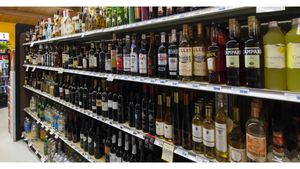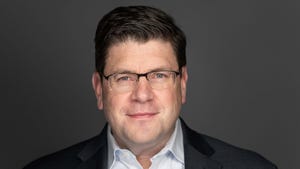WHAT MAKES A VISIONARY AND WHY WE PICKED THESE 50
There are two types of definitions I found in the dictionary for "visionary." One is a person whose ideas, plans, etc. are impractical, too idealistic or fantastic. That's not the kind of person we are honoring in this special issue devoted to 50 industry leaders.The other definition of visionary is short but on the mark: a person of unusual foresight. This week SN salutes 50 Visionaries who over
November 25, 2002
David Orgel
There are two types of definitions I found in the dictionary for "visionary." One is a person whose ideas, plans, etc. are impractical, too idealistic or fantastic. That's not the kind of person we are honoring in this special issue devoted to 50 industry leaders.
The other definition of visionary is short but on the mark: a person of unusual foresight. This week SN salutes 50 Visionaries who over the years exhibited unusual foresight in their actions, and in the process helped to transform food retailing in positive ways. Many of our choices came from responses to our call for industry nominations. Whenever possible, SN editors spoke directly with the Visionaries themselves to research profile stories.
It's easy to see why some of the Visionaries made the list. Sol Price founded the membership warehouse club business. Sam Walton created Wal-Mart and its various food-retail formats. Robert Wegman launched one of the most innovative of food retailers.
But there are many more people among the 50 who were not company founders. What put these people on the same list?
The common element among the Visionaries is that they marched to their own beat. They acted based on perspectives that may have differed from the conventional wisdom, but over time their views were usually borne out.
Michael Cullen saw the need for a large, self-service supermarket that could sell merchandise at discount prices, thus giving birth to the modern supermarket era. Esther Peterson understood the tidal wave of change driven by the consumer movement in the 1960s and instructed the government and industry on how to respond. Leaders including Jack Strubbe, Alan Haberman and David Jenkins helped retailers grasp opportunities in technology.
SN editors enjoyed the unique opportunity to speak with many of these industry mavericks. Editors were pleased to find that many of the Visionaries still have excellent memories of long-ago events. Probably some of the things that will stick longest with editors are anecdotes that never even made it into the published profiles.
For instance, in my talk with Jack Crocker, the former leader of Fred Meyer and Supervalu, he told me that early in his career he had difficulty firing employees. Fortunately, Crocker served a long apprenticeship under Fred Meyer himself, who taught him an important lesson. "He told me that it would be an injustice to leave an individual in a position that he'd never be good or happy at," Crocker recalled. From that day on Crocker realized he would sometimes need to terminate employees, "But I always sat with them and told them where I thought they had a future," he said.
That story underscores for me that these Visionaries had to master the facts of business -- and living -- just like everyone else. But their actions show that, for the most part, they weren't afraid to make mistakes, keep open minds and, always, adapt.
About the Author
You May Also Like




